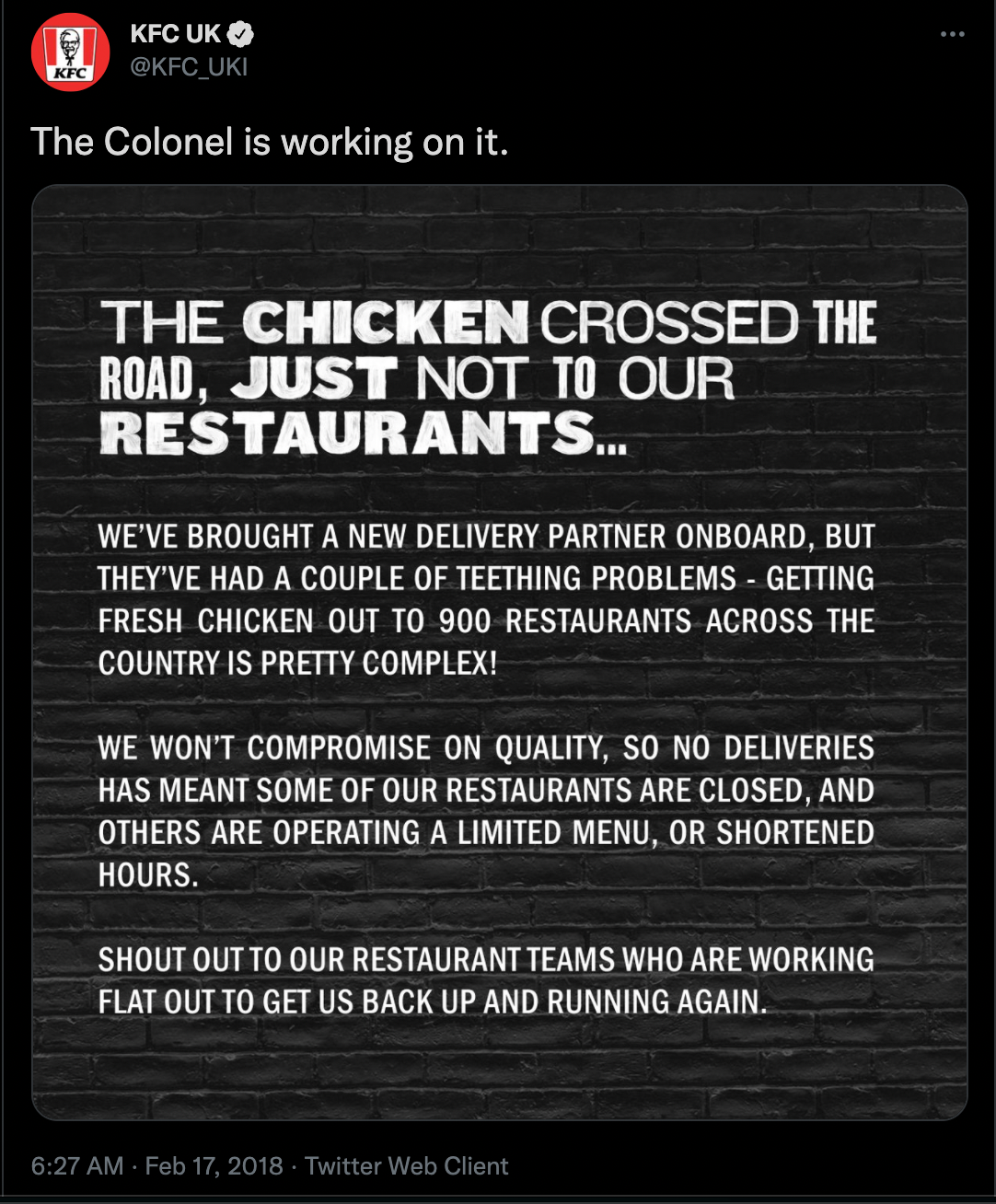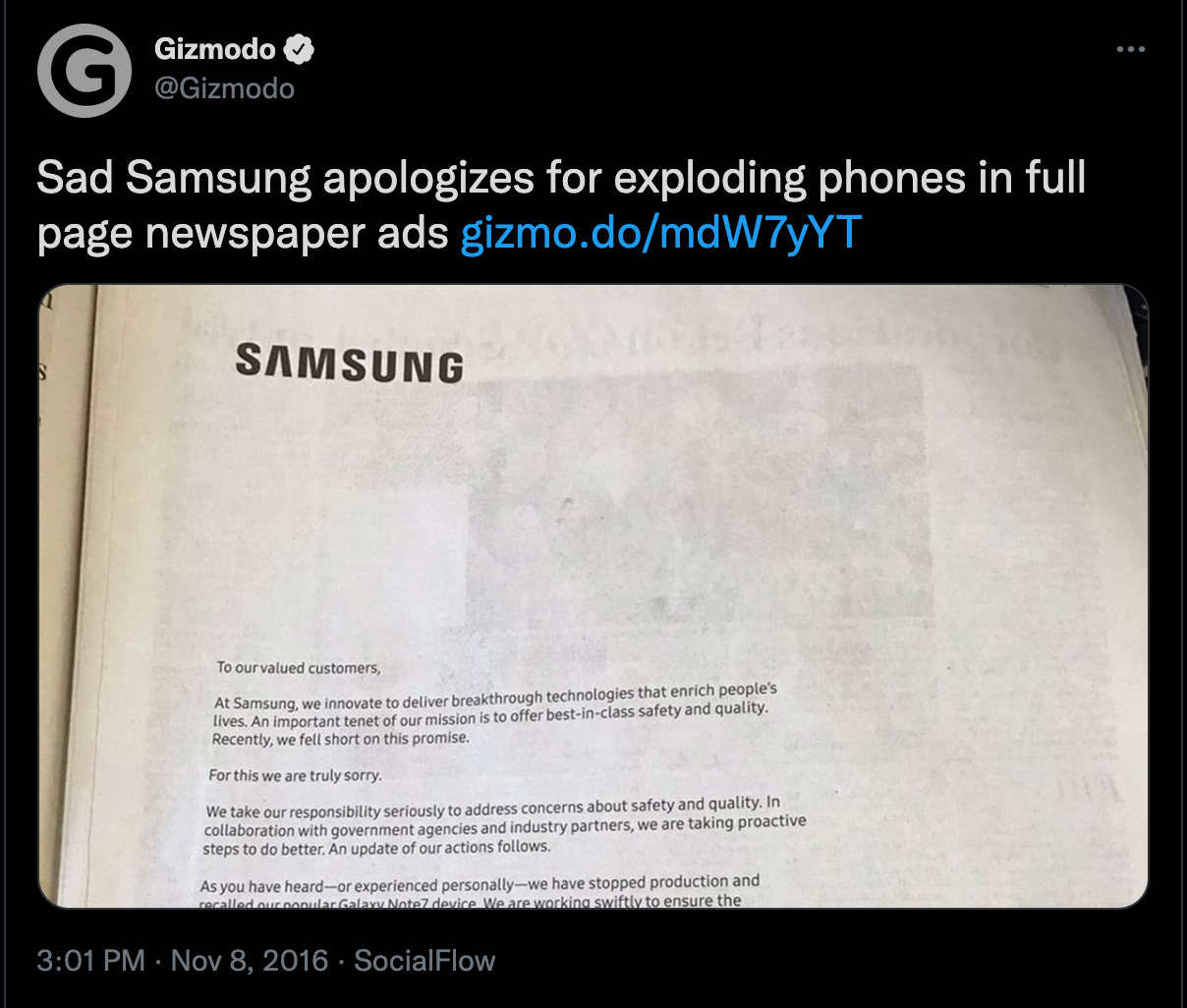What is Crisis Management (& Why is it Important)
Reputation Staff Writer

No matter how well-intentioned you are, your business will be likely to run into some level of crisis in its lifetime. Without a doubt, a brand crisis is a stressful situation to be in. But with a well-thought-out crisis management plan, your business can bounce back and thrive following any incident.
In this article, we’ll break down the definition of a crisis management plan and the reasons why you need one. We’ll do so in the following sections:
- What is Crisis Management?
- 5 Reasons Why Your Business Needs a Crisis Management Plan
- Leveraging Social Listening to Create a Crisis Management Plan
- Three Examples of Crisis Management Done Right
What is Crisis Management?
A crisis management plan refers to the steps that organizations take in order to prevent and respond to an event that may threaten to harm their online reputation. This crisis could be a natural disaster, a corporate crisis, or anything in between. As a brand crisis typically comes out of the blue, crisis planning is designed to expect the unexpected.
With that in mind, your business’s crisis management plan should be as flexible as possible. Your specific approach will be dependent on the crisis at hand, meaning that your plan needs to allow room to pivot on the fly. The bottom line is simply that a crisis management plan is vital to every business, as it offers you the best chance of recovering when a crisis occurs.
5 Reasons Why Your Business Needs a Crisis Management Plan
Here’s why your organization needs to implement a crisis management plan into your business strategy:
It Defines What a Crisis is For Your Business
Crisis events aren’t a one-size-fits-all situation. Your business needs to define what the difference is between a slight inconvenience compared to a full-blown scandal. As Tech Day HQ states, the brand crisis management plan defines who will take the lead during the crisis, who will be the organization’s spokesperson, and which company policies will keep employees in line during the crisis. With all those pieces in place, you’ll be able to craft the plan best suited for the crisis at hand.
Related: How to Avoid a Reputation Crisis of ‘United’ Proportions
Your Customers Need Information
If the incident your business is facing is a public one, your customers will demand answers. In this age of social media, they’ll likely be looking for answers through a variety of channels, including social media, email, and phone calls. Your crisis management plan should include deploying crisis management team members to answer these inquiries. Without the vital information they need, you’ll lose their trust.
A Crisis Management Plan Will Help Minimize Damage to Reputation and Revenue
Not only does a brand crisis have the potential to damage your business’s reputation, but it can harm revenue as well. A well-executed crisis communication management plan will ensure to those watching that your company is honest and reliable. With a reaction like that, current and potential customers know they can trust you with their business. Your competitors may even take note for their own strategies.
But handling a crisis situation poorly will send the opposite message. You’ll lose the trust of current customers. Prospects may hear of the crisis through word-of-mouth and take their business to your competition. In extreme situations, a brand crisis may even cost you in legal fees.
A Crisis Management Plan Helps You Rebuild After an Incident
As Tech Day HQ states, a crisis has three stages — the prevention phase, the mitigation phase, and the recovery phase. If a brand crisis hits your business, it’s too late for the first two phases. But that means that it’s more important than ever to focus on the recovery phase.
Your crisis management plan should outline how to recover from the incident. It should analyze what went wrong, how the response played out, and the challenges to be addressed during the recovery process. By taking a close look at each of these elements of the crisis, your business faced, you’ll be better prepared to recover long-term.
Your Employees are Watching Your Next Move
While your customers’ and prospects’ well-being may be front of mind during a brand crisis, you need to consider your employees too. They’ll be watching what your company’s next strategic move is in the face of a crisis.
Related: How To Manage Unhappy Employees
Companies often like to tout that their culture is like a family, so that means you need to consider employees during this time. A vital part of your crisis management plan should be to over-communicate to ensure their jobs are safe. Or perhaps even more importantly, reach out quietly and quickly if it will negatively impact them.
Leveraging Social Listening to Create a Crisis Management Plan
Whether it be a poorly-received tweet or a scandal that an outside party breaks on social media, many brand crises these days are social media crises. As we previously wrote, here are the three distinct characteristics that define a social media crisis:
- Information asymmetry — When you don’t know any more about the crisis at hand than the public does
- A change from the norm — Something more serious than light criticism of your products or services
- Serious risk to your company — Consider the scope. A true crisis would have a deeply negative effect on your company.
If your negative event at hand falls under the category of a social media crisis, consider the following ways that you can leverage social listening to manage the specific issue:
- Institute a social media policy for your employees — Consider making this a part of the contract that human resources have an employee sign before starting with your company. That way, all employees will know to give all social media posts a second thought.
- Know the signs of potential crises— The great thing about a social listening tool is you can monitor trending keywords and sometimes sentiment around those words. If you see a sudden spike either way in those trends pre-crisis, you’ll know that it’s something to look into immediately.
- Get to the crux of the problem — If you start to see a concerning trend across your social media channels, you’ll be able to see the root of the problem. We previously discussed that Nuvi had been tracking IBM when they saw a spike in negative sentiment. Using the tools in their disposal, they were able to see that the negativity wasn’t directed at the company itself, but a separate list.
Related: How to Get Started with Social Listening
Three Examples of Crisis Management Done Right
No matter how detailed your plan is, a brand crisis will always catch you by surprise. But the good news is that your business has the opportunity for recovery. Major brands have dealt with their own types of crises and managed to bounce back. Take a look at these three examples of crisis management done right:
Southwest Airlines

In 2018, Southwest Airlines tragically suffered an in-flight fatality when an engine exploded and ripped into the fuselage. Understandably, passengers shared footage of the incident on their phones. Once they safely executed an emergency landing, Southwest immediately reiterated in post-crisis communication how heroic the pilot was for getting the passengers to safety.
CEO Gary Kelly quickly released his own video statement offering his condolences to the family of the deceased and an apology to the passengers. He went on to answer all questions he was able to about how the incident took place.
Samsung
In 2016, some of Samsung’s new products began to burst into flames, forcing the company to recall two million phones and stop production of the Galaxy Note 7. In the face of a crisis, Samsung decided to be proactive. They hired researchers and created a battery advisory group to ensure that an incident like that would never happen again. Consumers respected the safety-first approach, and Samsung’s reputation was saved.
KFC

In 2018, KFC trucks in Europe were involved in a major road accident on the way to a logistic partner’s warehouse. That incident caused major delays in getting fried chicken to stores. While customers unhappily dealt with empty stomachs, KFC remained in constant communication. They quickly put up a website that had updated status on chicken delivery, along with swiftly answering questions that came through their social media channels.
With a clear understanding of what crisis management is and how to handle any incident you are faced with, your business is going to be primed for success.











